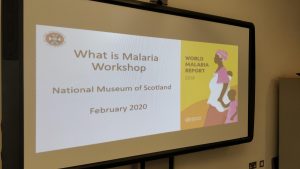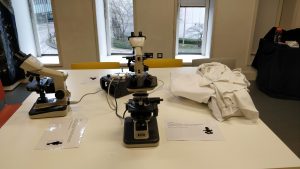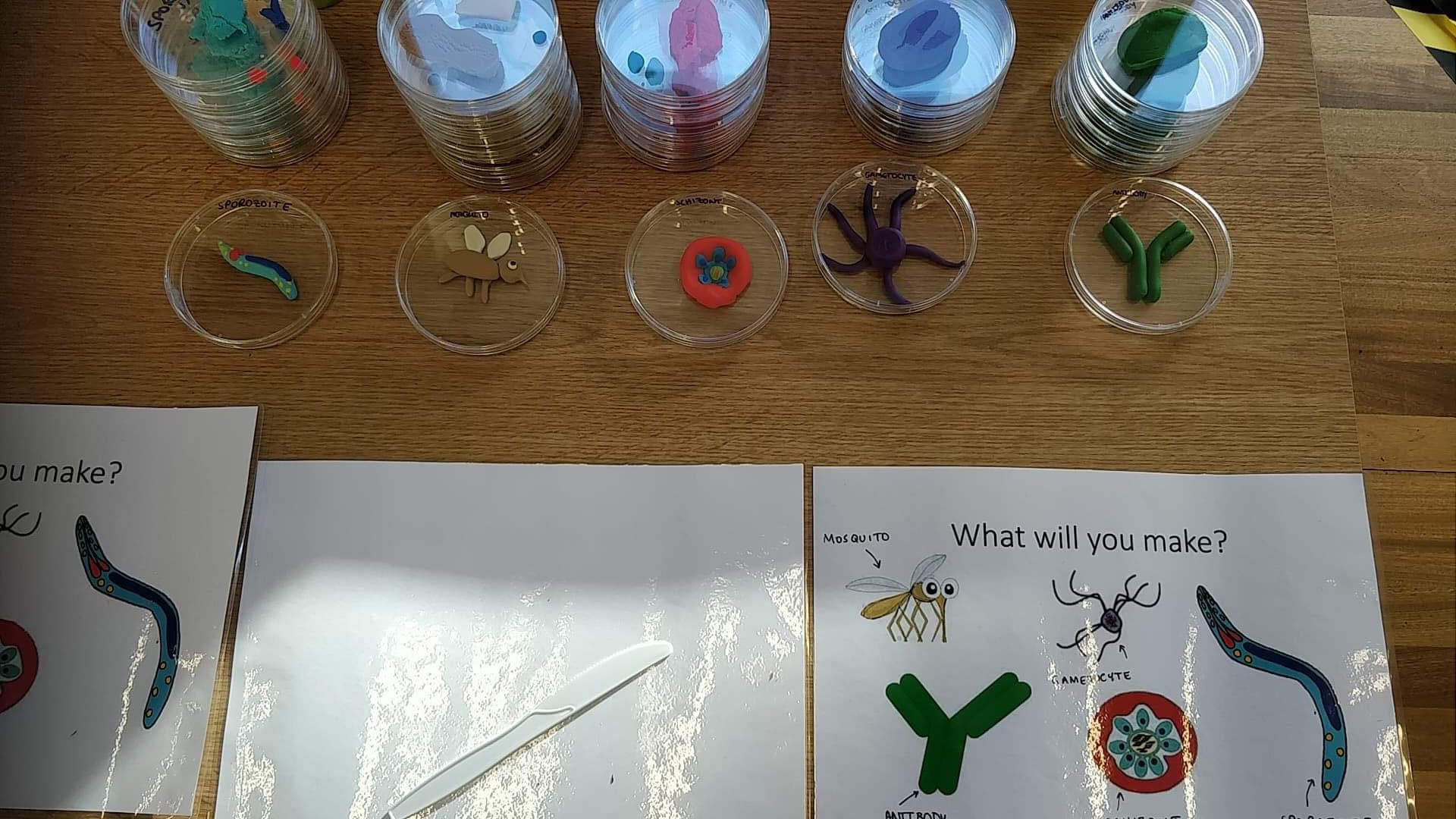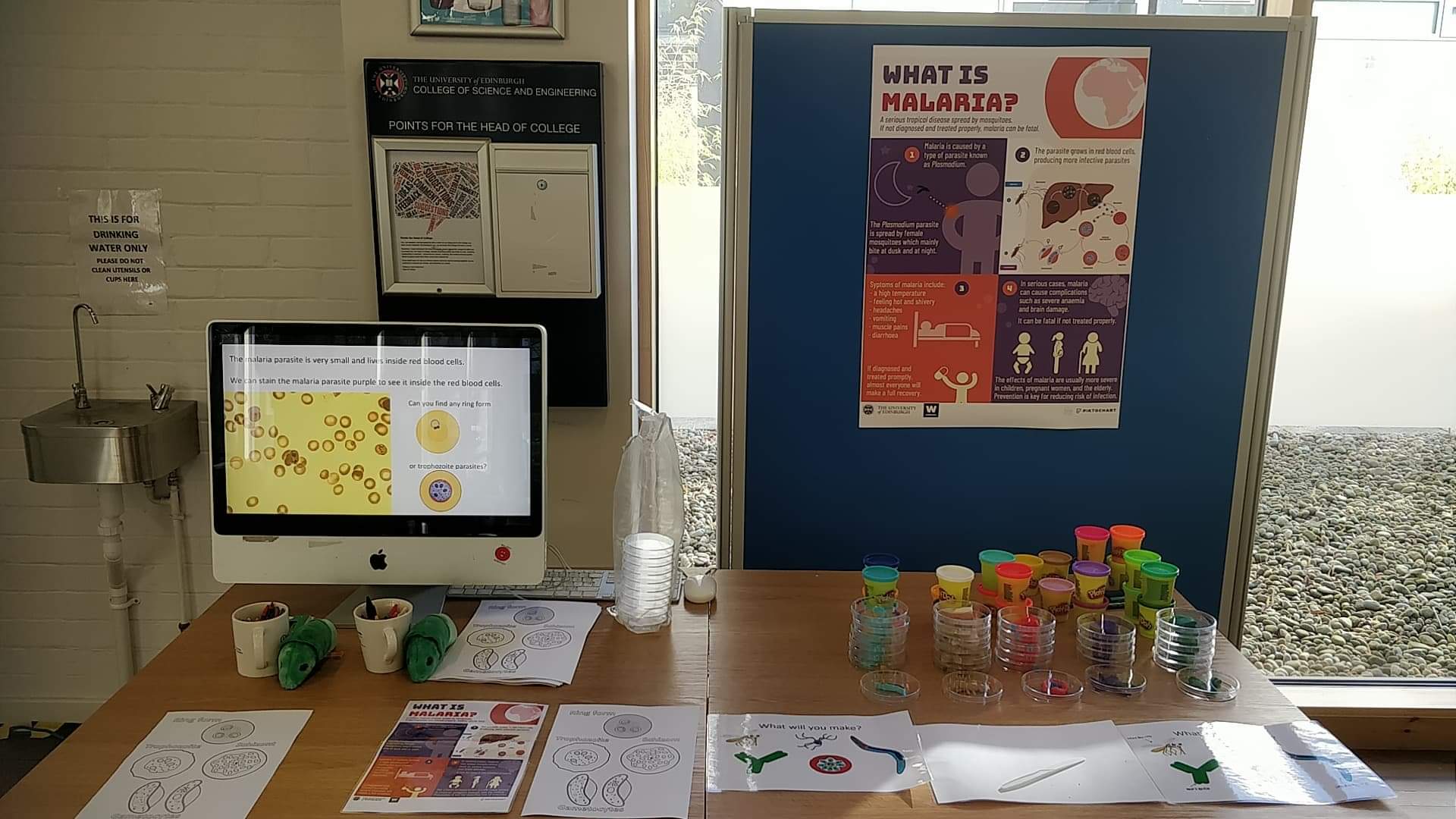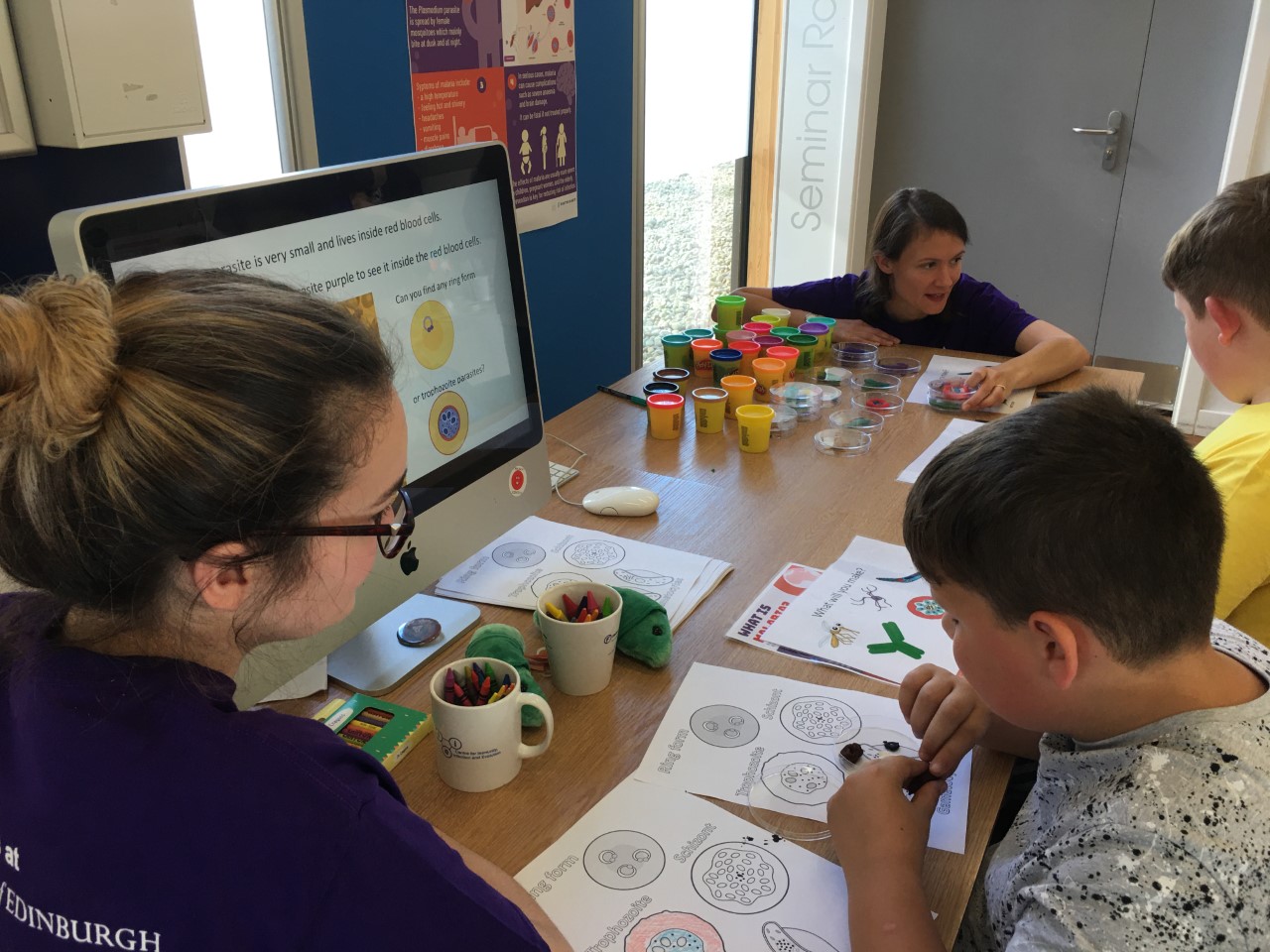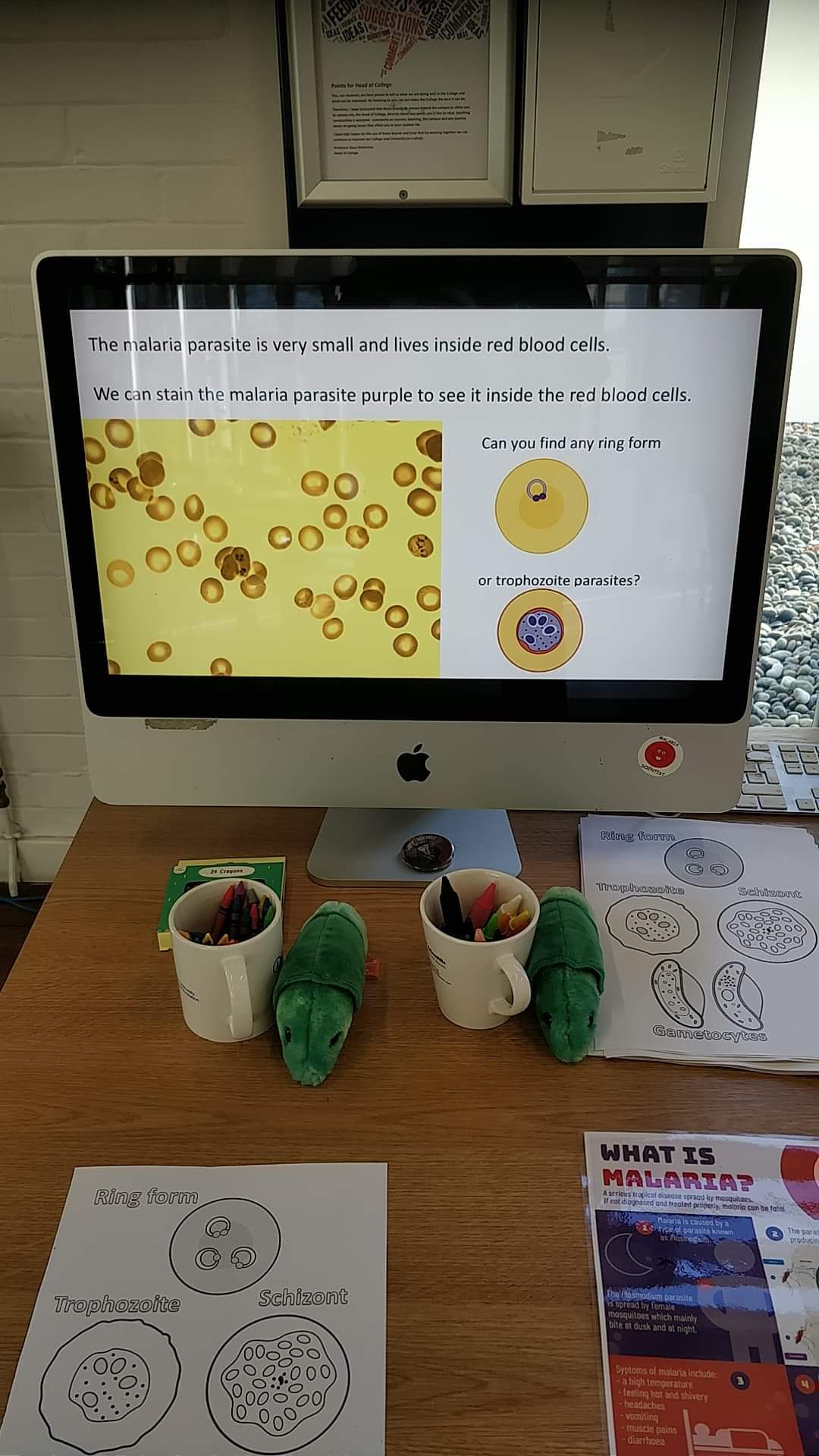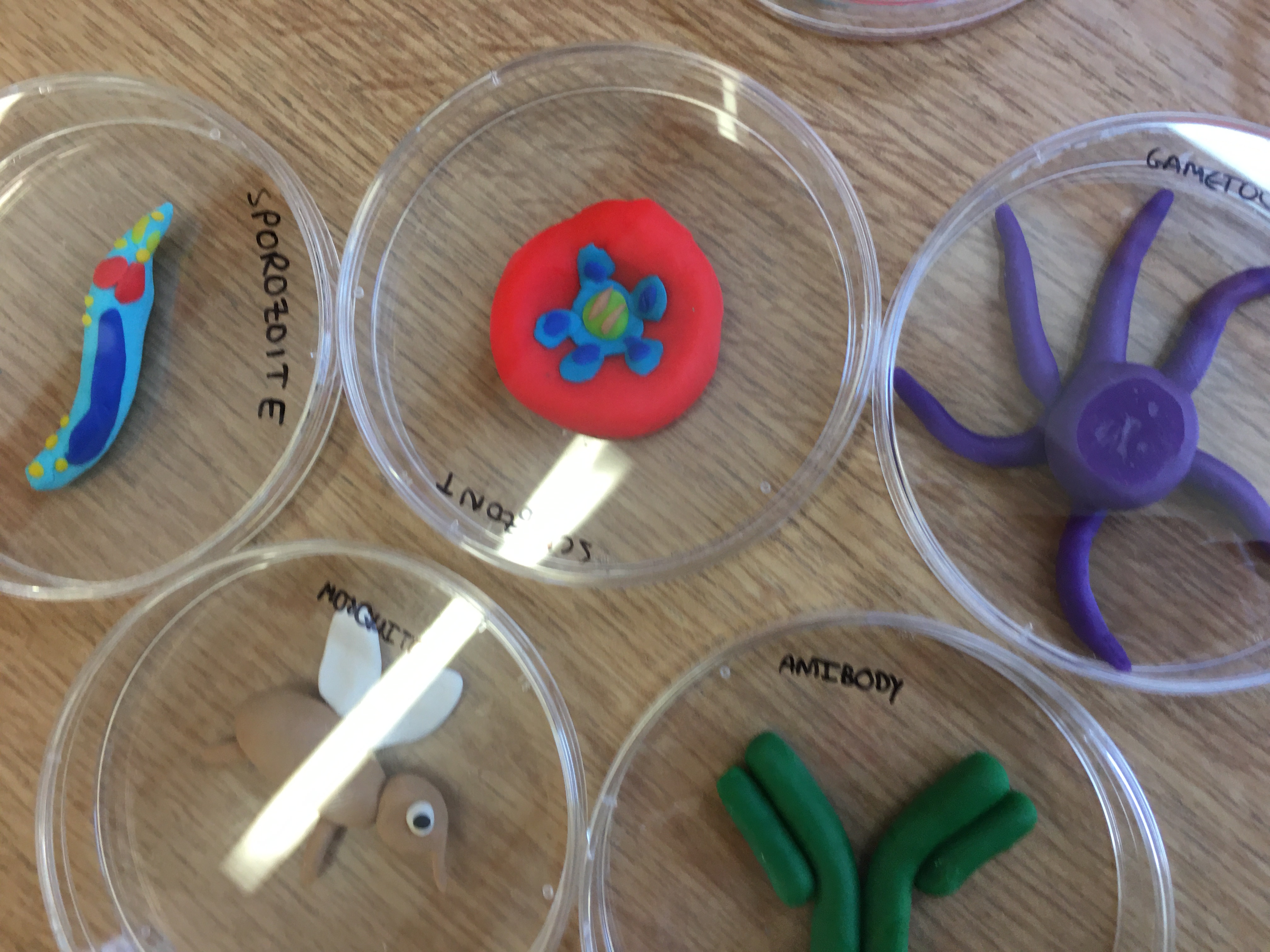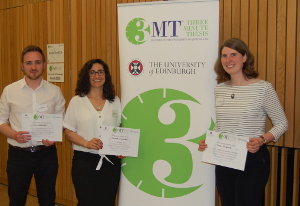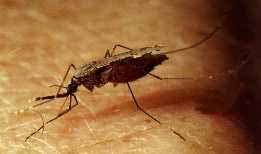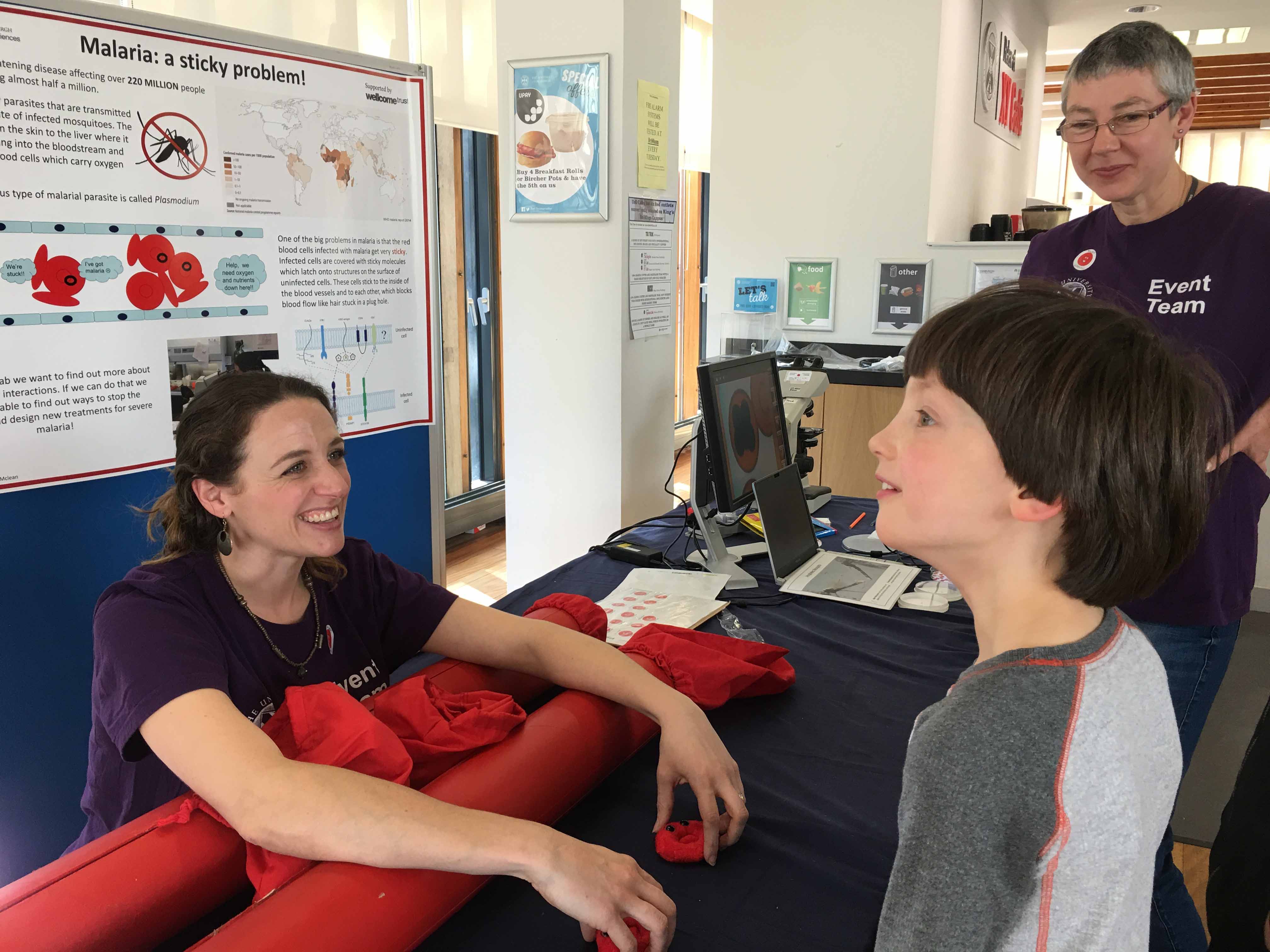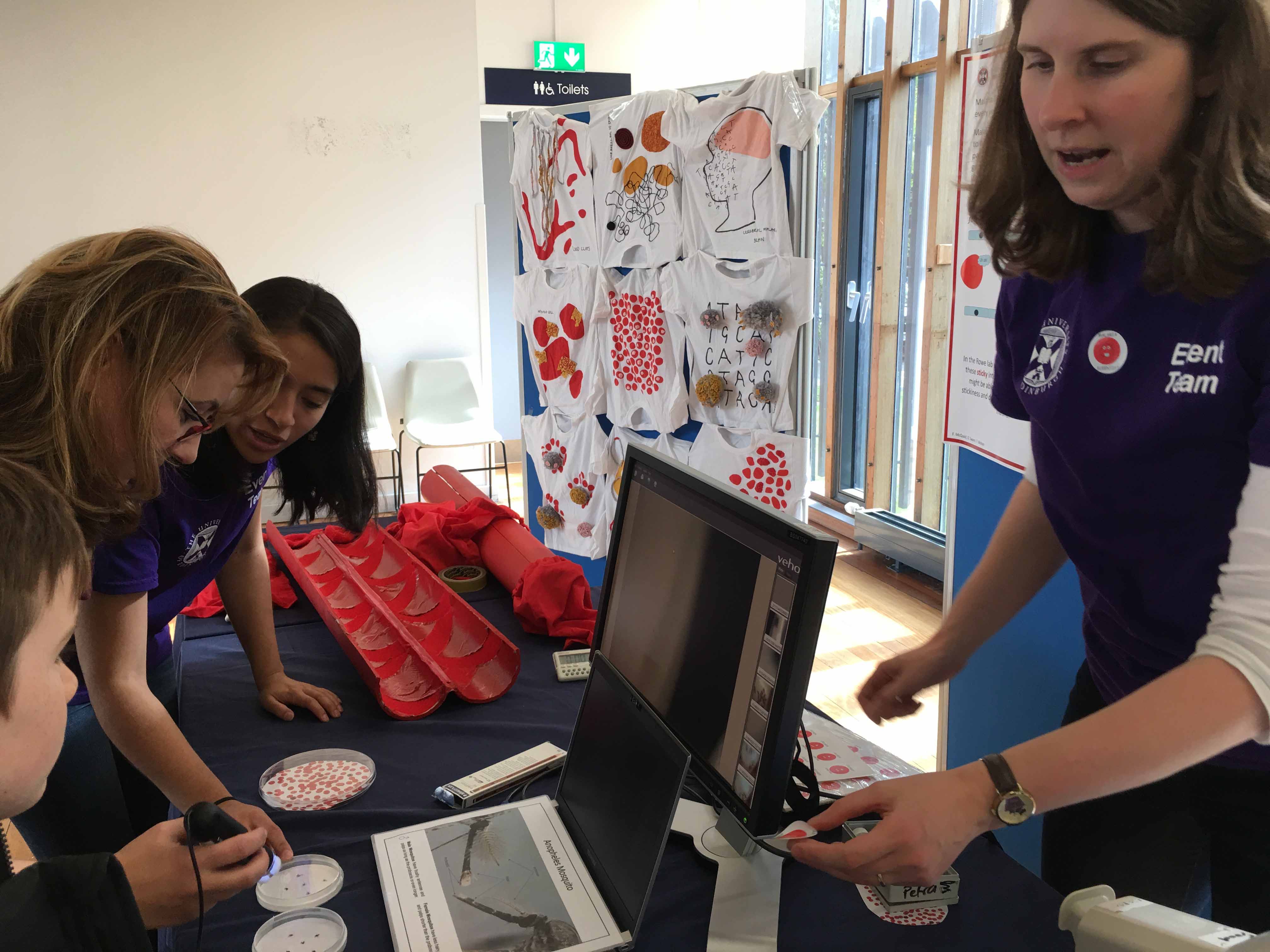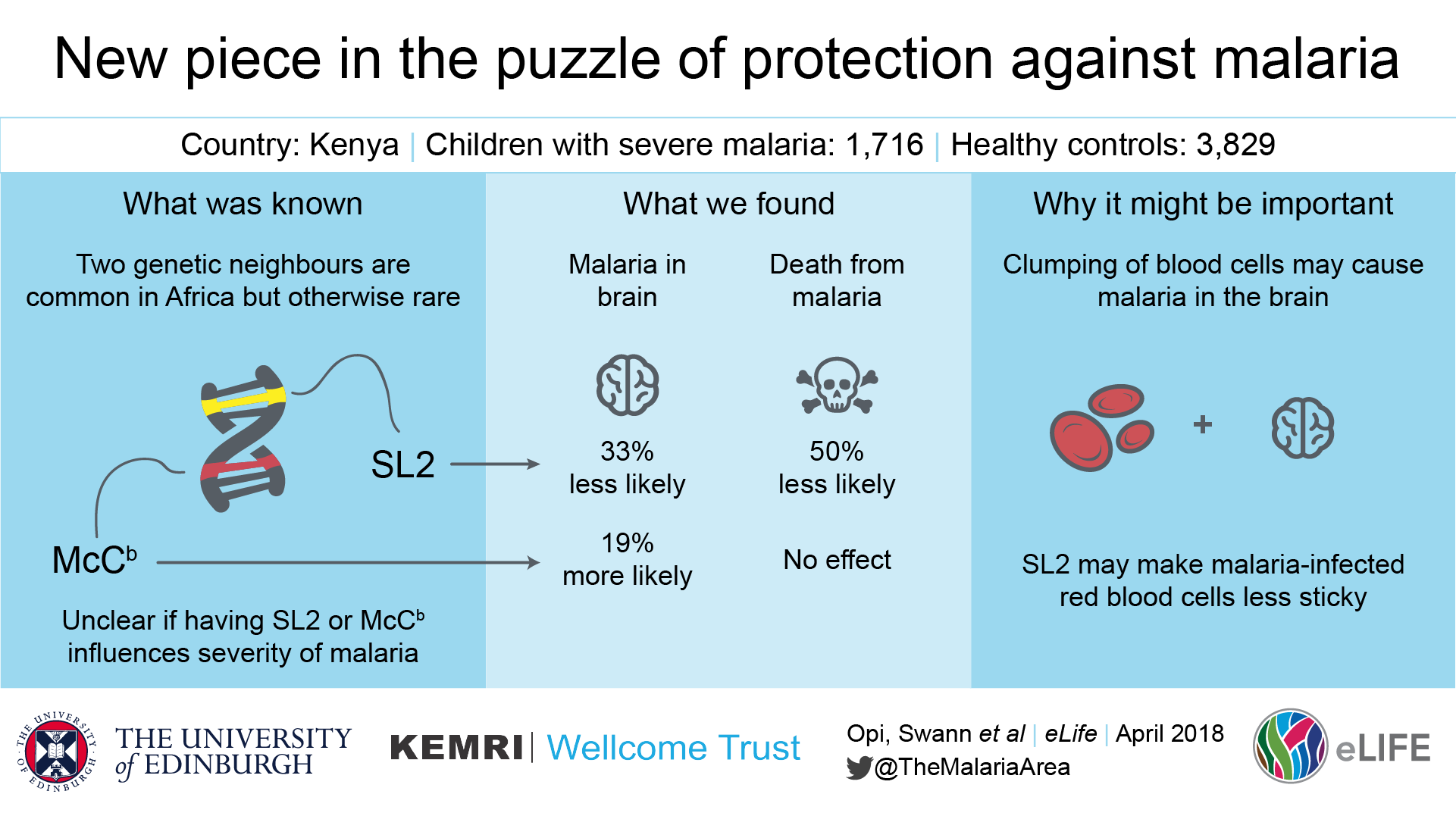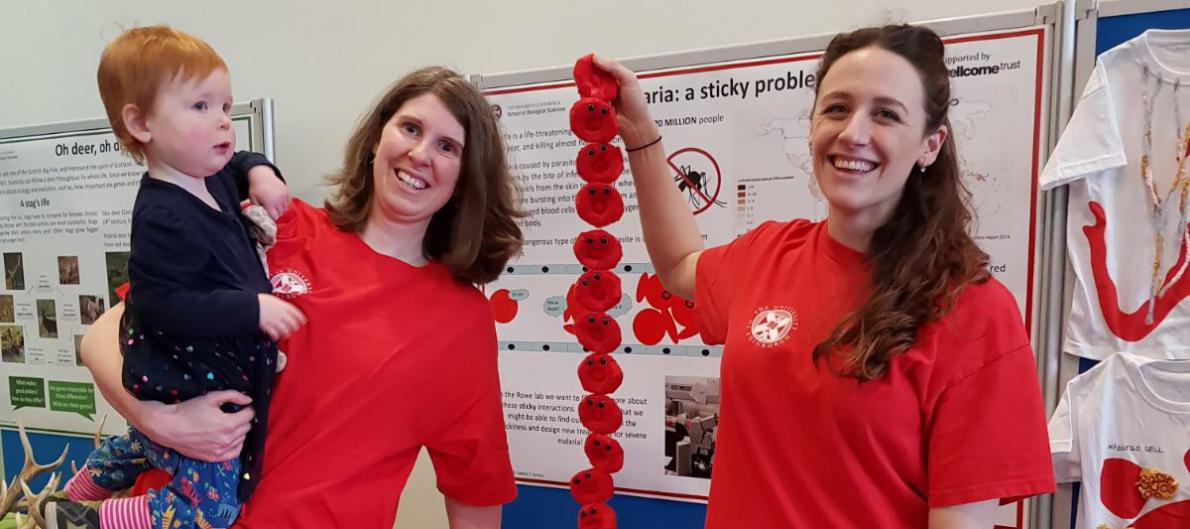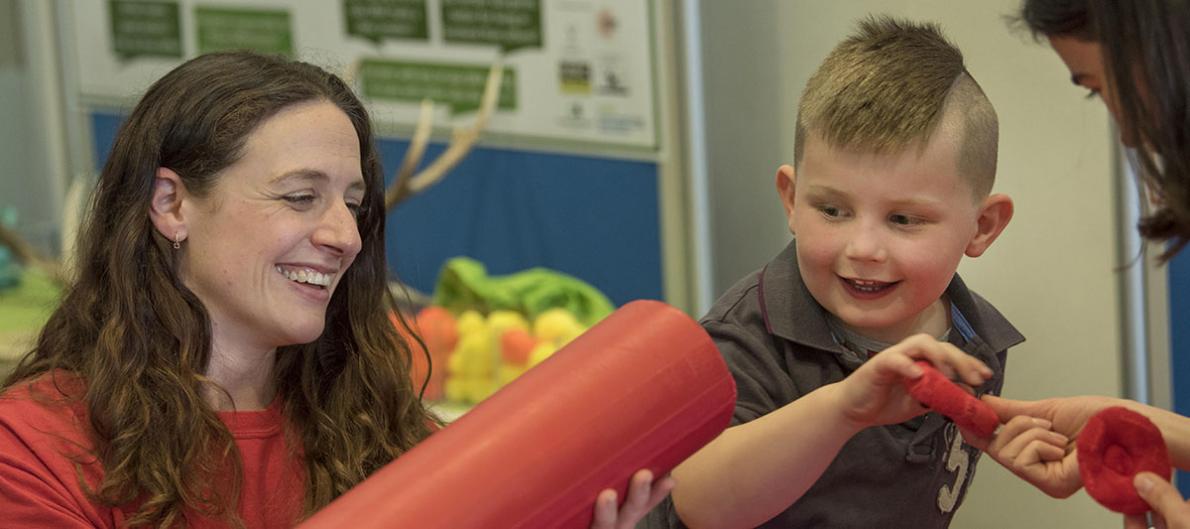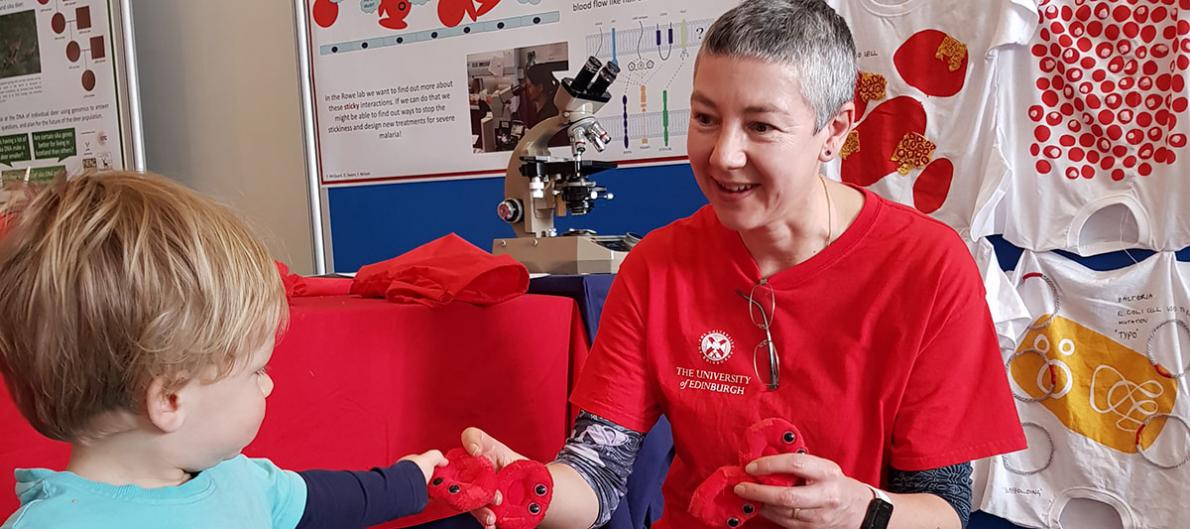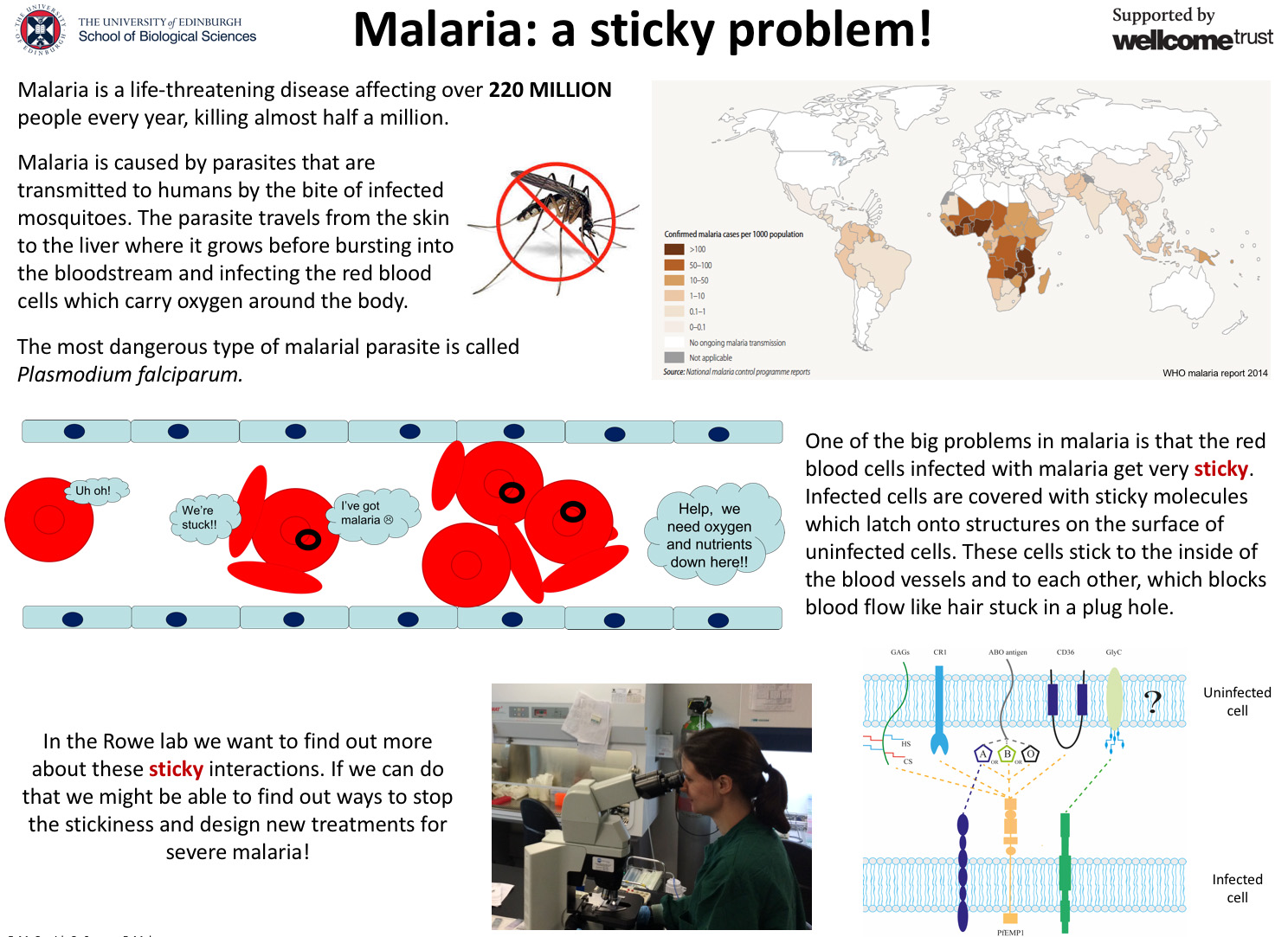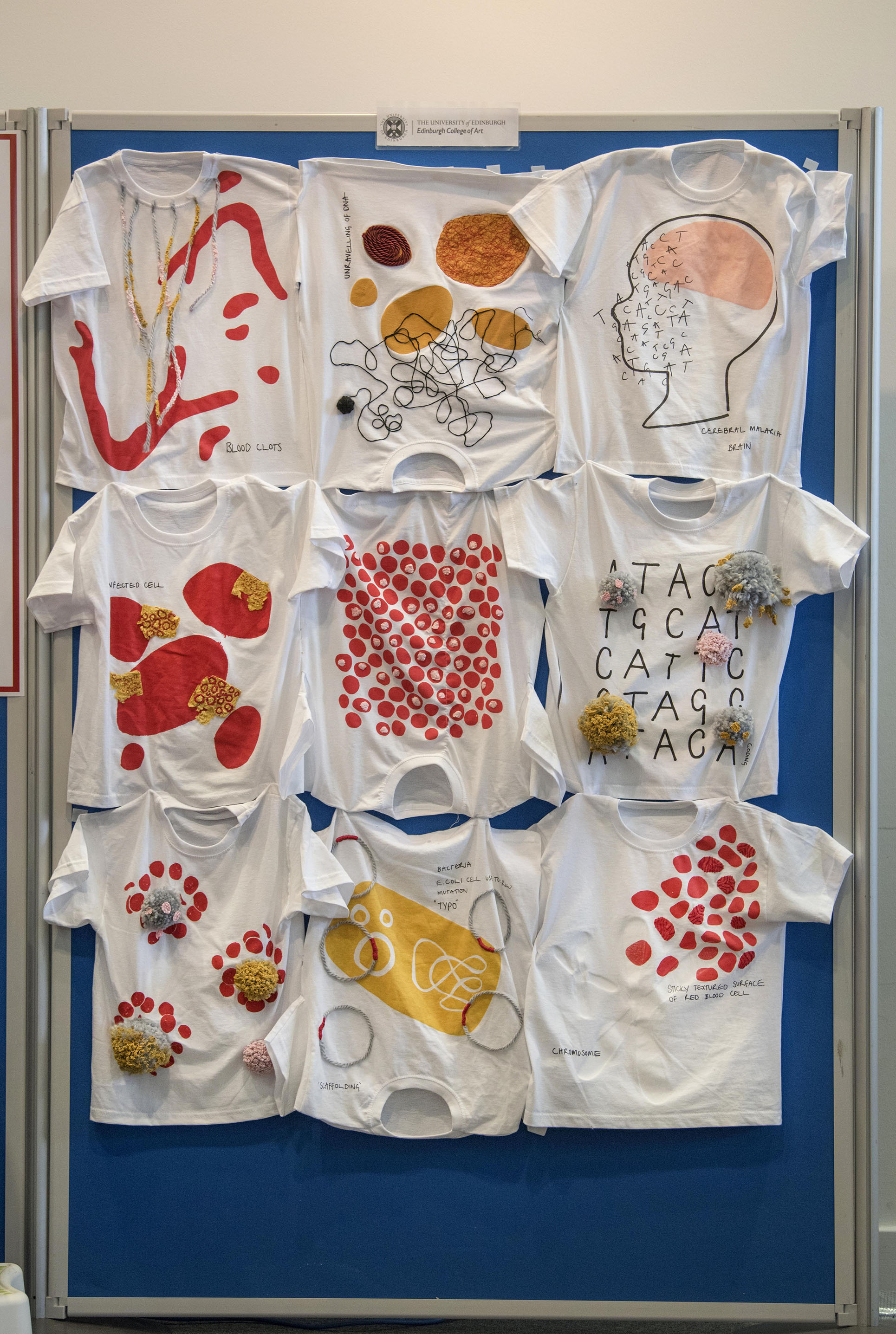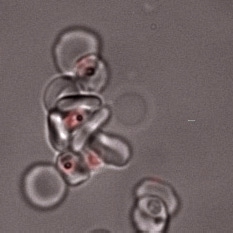See below for a selection of out-reach activities and media coverage.
Parasites: Battle for Survival (6 Dec 2019 – 19 Apr 2020)
The Rowe lab contributed to the National Museum of Scotland exhibition Parasites: Battle for Survival https://www.nms.ac.uk/exhibitions-events/exhibitions/national-museum-of-scotland/parasites/
This family-friendly interactive exhibition invites you to join the battle against five tropical diseases and the parasites that cause them, and discover how scientific research taking place in Scotland is leading the way in this field.
As part of the exhibition, Rowe lab PhD students Molly Carlier and Flo McLean developed the “What is malaria?” workshop for secondary school students.
See also online resources such as “Tackling malaria” https://www.nms.ac.uk/explore-our-collections/stories/science-and-technology/parasites-and-deadly-diseases/stories/malaria/
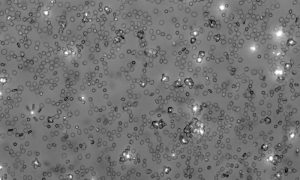 Malaria parasites (stained white) live inside red blood cells and can cause the formation of cell clusters called rosettes, seen here in a laboratory culture. Image from Professor Alex Rowe’s lab, University of Edinburgh.
Malaria parasites (stained white) live inside red blood cells and can cause the formation of cell clusters called rosettes, seen here in a laboratory culture. Image from Professor Alex Rowe’s lab, University of Edinburgh.
Doors Open Day 2019
Flo McLean and Molly Carlier developed a new activity for families at the King’s Buildings Doors Open Day on 28th September 2019. Visitors used play-doh and colouring to learn about the malaria parasite and how it is carried by mosquitos which bite humans to feed on their blood.
3 minute thesis competition 2019
Huge congratulations to Dr Fiona McQuaid who was the People’s Choice winner at the University of Edinburgh 3 minute thesis competition. See the link below for a YouTube video of Fiona’s (2 min 54 second) description of her PhD work on malaria. https://www.youtube.com/watch?v=lAqUPpmVmYA
A full video of the final is available at:https://www.youtube.com/watch?v=zOQVoi9aScM&list=PLBcSHVMkBQZj3CQ0ykc8qY8r8SefX2Jla
Sticky cells, malaria and mosquitoes at Doors Open Day 2018
Alex and the team were at the King’s Buildings (Roger Land Building) for Doors Open Day 2018. Lots of young visitors tried out our Sticky cells and Malaria experiment, and also looked at mosquitoes down the microscope to discover how to identify male mosquitoes (which are harmless and eat pollen and nectar) from female mosquitoes (who bite humans, suck our blood and can spread diseases such as malaria).
On the Radio:
2018. BBC Radio Scotland “News Drive” programme.
Four minute interview with Clinical Fellow Dr Olivia Swann describing the research published in eLife showing that Complement Receptor One polymorphisms that are common in Sub-Saharan Africa influence susceptibility to cerebral malaria. This helps to explain why some children, but not others, suffer from life-threatening malaria.
Malaria a Sticky Problem at the Edinburgh International Science Festival:
The Rowe lab were at the 2018 Edinburgh International Science Festival to talk about their research on severe malaria. Clinical Fellows Dr Fiona McQuaid and Dr Olivia Swann developed a hands-on experiment involving squishy red cells and a giant blood vessel to show how malaria-infected cells can block blood flow in the brain with deadly consequences.
See also: https://www.ed.ac.uk/edinburgh-infectious-diseases/news/news-archive/malaria-sticky-problem
Edinburgh College of Art
The team also collaborated with students from the Edinburgh College of Art, who produced children’s T-shirt designs reflecting the research themes in the Rowe Lab.
Video
“In a nutshell” a one minute video clip in which Alex describes the aims of the research in the Rowe lab.
Previous Radio Interviews:
2012. BBC Radio Scotland “Good Morning Scotland” programme.
Four minute interview with Alex describing the research published in PLoS Pathogens showing that it is possible to raise strain-transcending antibodies against the surface molecules of rosetting malaria parasites.
Link to audio clip: (2 different formats)
2010. BBC Radio Scotland “News Drive” programme.
Four minute interview with Alex discussing Cheryl Cole’s near-death experience with malaria, and why its important to take the correct anti-malarial prophylaxis pills when travelling to tropical countries (NB. The bottom line is: go to your GP or a travel clinic for advice on anti-malarial pills before travelling to a malarious country! Also, do your best to avoid being bitten my mosquitoes – use insect repellent and wear long sleeves/trousers especially at night. See the “Fit for Travel” website. )
University of Edinburgh BioPOD (School of Biological Sciences Research News Podcasts)
October 2012 issue
Alex talks about rosetting and severe malaria, and recent research on raising strain-transcending antibodies to the surface molecules of rosetting parasites.
- Download here, or from the archive
Summer 2007 issue
Alex talks about parasite invasion pathways and severe malaria.
- Download from the archive.
For the full University of Edinburgh BioPOD archive see http://www.ed.ac.uk/schools-departments/biology/news-events/biopod/archive.
Some older press coverage of Rowe Lab research:
Scientists have identified a link between different strains of malaria parasites that cause severe disease (Ghumra et al, PLoS Pathogens 2012).
Researchers have identified a key protein that is common to many potentially fatal forms of the condition. They found that antibodies that targeted this protein were effective against these severe malaria strains.
- See Science Daily http://www.sciencedaily.com/releases/2012/04/120420105833.htm
- and Sci Guru http://www.sciguru.com/newsitem/13688/Identified-common-surface-antigen-PfEMP1-malarial-parasite-strains.
New discoveries about severe malaria could lead to new interventions (Claessens et al, PNAS 2012).
Researchers from the University of Edinburgh have uncovered new knowledge related to host-parasite interaction in severe malaria, concerning how malaria parasites are able to bind to cells in the brain and cause cerebral malaria – the most lethal form of the disease.
Science Daily: http://www.sciencedaily.com/releases/2012/05/120521164058.htm
Blood findings bring malaria hope (Rowe et al, PNAS 2007).
The most common blood type (group O) in the British population protects against the most deadly form of malaria, according to a study that heralds a new kind of treatment.
- New Scientist: http://www.newscientist.com/article/mg 19626275.000-blood-type-can-confer-resistance-to-malaria.html;
- BBC: http://news.bbc.co.uk/1/hi/scotland/edinburgh_and_east/7069018.stm
- Daily Telegraph: http://www.telegraph.co.uk/science/science-news/3312023/Type-O-blood-protects-against-malaria.html
Sticky blood gives malaria clue (Cockburn et al, PNAS 2004)
A mutated gene which may protect malaria patients from the worst effects of the disease could help scientists in their hunt for a vaccine.
Unravelling red cell rosetting
Alex Rowe is investigating why some forms of the malaria parasite cause red blood cells to clump together and form harmful ‘rosettes’.
Wellcome News: http://malaria.wellcome.ac.uk/doc_WTD023857.html


